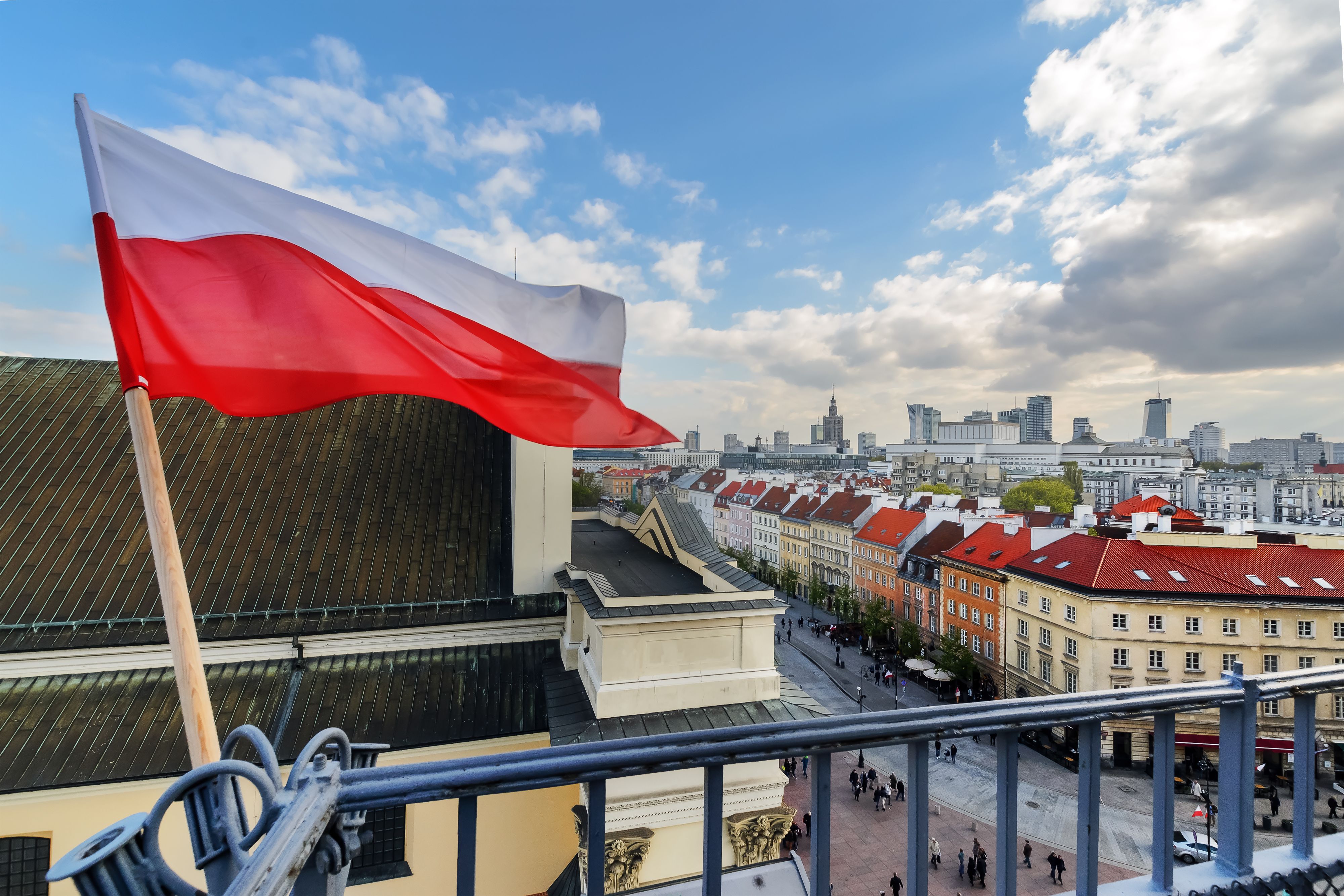MLex® exclusive: Poland's Justice Minister Bodnar makes closer EU ties a top priority
MLex® exclusive:
Poland's Justice Minister Bodnar makes closer EU ties a top priority
In conversation with MLex Global Chief Correspondent Matthew Newman, Polish Justice Minister Adam Bodnar talks about his country's steps to reverse eight years of policies by the previous government. Bodnar, a former human rights commissioner, wants to show European Union officials that Poland has turned the page from the Law and Justice Party. Restoring ties with the EU — and unblocking EU funds that were suspended over a rule-of-law dispute — are top priorities.
Tune in to the interview now for exclusive insights, or keep scrolling for related stories on data protection and digital regulation from our specialist journalists across the globe.
Poland’s new privacy boss shows shift away from politicized posts, justice minister says
1 February 2024
By Matthew Newman and Jakub Krupa
Poland's new independent data protection regulator shows the country has taken steps to reverse eight years of policies by the previous government that were criticized for politicizing key positions and the justice system, Adam Bodnar, Poland's new justice minister, told MLex in an interview.
Human rights lawyer Mirosław Wróblewski was named the president of the Personal Data Protection Office last month, after securing the support of lawmakers. He replaces Jan Nowak, who formally ended his term last May.
"For us, it's important that we have a person who is really independent," Bodnar said ahead of a meeting of justice ministers in Belgium last week.
Bodnar said Wróblewski isn't a member of a political party, and is well respected for his work in the data protection and human rights fields for the past 25 years.
Until 2023, Wróblewski worked in the Polish ombudsman's office, where he led the work on constitutional and international law, working closely with Bodnar, who held the post of ombudsman between 2015 and 2021.
Wróblewski said he would prioritize work on EU digital regulations, artificial intelligence and restoring the independence of the Personal Data Protection Office from government, after years of alleged abuses.
The appointment follows a wave of changes in Poland after the Law and Justice Party lost elections last year, with pro-Europe leader Donald Tusk taking office as prime minister. Tusk has made restoring ties with the EU — and unblocking EU funds that were suspended over a rule-of-law dispute — his top priorities.
Bodnar, a former human rights commissioner, is in a key position to show senior EU officials that Poland is turning the page after the Law and Justice Party, and is back as a “strong partner and member of the European Union that is loyal and wants to work together on EU values, and the implementation ... and development of EU law.”
Digital policies are expected to be prioritized by the new government, with digital minister Krzysztof Gawkowski also being appointed as one of the two deputy prime ministers serving under Tusk.
“[Gawkowski] will not only ... implement the rules, but Poland would [have] to say a lot in the context of framing future EU policies concerning [digital],” Bodnar said.
Bodnar himself was previously vocal on the implementation of the Digital Services Act and the Digital Markets Act in Poland.
The government closed its consultation on the DSA in late January, with most respondents to the call for views indicating the task should fall to the Office of Electronic Communications, or UKE. The formal appointment of the Polish digital services coordinator is expected shortly.
EU funds
Poland is working to convince the EU that 76 billion euros ($82 billion) in EU funds should be unblocked after it committed to make changes to meet rule-of-law conditions, Bodnar said.
Bodnar said he's notified other EU governments that Poland will join the European Public Prosecutor's Office, an independent agency that deals with cases affecting the bloc's financial interests. The previous government had refused to cooperate with the EU body.
He's also proposed that the government separate the office of the minister of justice and the prosecutor general.
The European Commission said Poland had officially informed it on Jan. 17 that it believed it had fulfilled the rule-of-law conditions necessary to get the money, but that this was still being assessed. The commission has three months to review the request, a spokeswoman said today.
Bodnar has recently met with EU Justice Commissioner Didier Reynders and Věra Jourová, the commissioner for values and transparency.
He said the meetings are indicators of "friendship" and "loyalty of building trust," as well as showing EU officials that "we are basically a strong partner and a strong member of the European Union that is loyal and wants to work together on EU values, and on the implementation and development of EU law."
Bodnar said one of the big challenges would be the reform the Constitutional Court, which has been accused of being politicized by the previous government. He declined to reveal how the current government would reform the court.
"We are going to propose a complex solution to the Constitutional Court," he said. "It's a little bit too early for me to say what will be in this proposal, but we hope there will be a chance [to renew the] importance of the Constitutional Court."
Bodnar said the new government was keen to swiftly bring Poland back to the European mainstream after eight years of the nationalist-right rule, which was criticized for politicizing the justice system and turning state media into a propaganda arm for the ruling party.
The minister defended his coalition government's decision to place public broadcaster TVP in administration and to remove leadership that supports the Law and Justice party.
He said the state media was operating in a "one-sided fashion," that it was used "as an instrument of hatred," and was putting opposition politicians "in a very detrimental position."
The goal is to create public media that serves the general public and presents politicians "as they are," and not "in this kind of accelerated boosted way, as it happened before," Bodnar said.
For access to breaking news and predictive analysis on data privacy and tech regulation from our bureaus across the world, start your free trial today.

More from MLex







